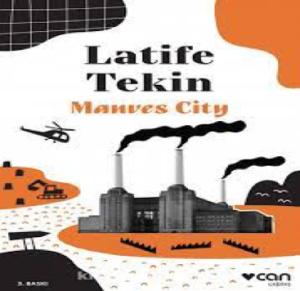A Requiem for Erice:
Manves City and Environmental Degradation
By Yasemin Kuyucaklı Karaöz

Latife Tekin’s Manves City written in 2018, explores the intimate relationship between the political, that is the issue of environment, and the private/social, reflected in the detrimental effects of ecological degradation in the lives of individuals. The novel basically revolves around the story of Ersel – an ex-factory worker newly released from prison. Manves City, as a portrayal of a small post-industrial town whose people have fallen victim to the traumatic changes brought about by crushing industrialization processes, highlights the fact that environmental degradation also devalues and disturbs the lives of a community.
Throughout the novel, we as the reader, bear witness to the dramatic transformations engendered by industrialization and mechanization, leading to the destruction of environment. In Erice, beautiful poppy fields have been taken over by Manves City, a massive production facility, and a new dam has already upset the natural balance. Moreover, mining operations and thermal energy probation activity have damaged the already scarce agricultural production, and people are forced to live in the midst of waste poisoning. In this context, not only are humans devalued and damaged, but also nonhuman creatures remain exposed to the surrounding ecological threats leading to the extermination of several species of fish and types of trees (124). In this way, Tekin’s narrative exposes how detrimental human activity and economies trampling on the environment also trample on both human dignity and equality. In a similar vein, this economic and industrial growth – with the newly built factories in the region- converts Erice population into a labor community, aggravating the inequality between the working class and the privileged class of land and factory owners. These laborers shed sweat under a hostile, unsafe and competitive working environment, being forced to work overtime for pitiful wages, and denied their basic rights to fair and just working conditions, social security and social assistance. Dehumanization processes by mechanization and technological advancements, furthermore, push the human factor out of the equation, devaluing the worth of human contribution and dignity.
On the other hand, Manves City does not only depict the corrupting effect of overproduction and consumption processes on the environment, but also on the moral and social values of its community. In this regard, Tekin’s narrative exposes the emergence of violence, both psychological and sexual, and diminishing sense of morality within society. Social inequality penetrates the intimate domestic life of individuals. While women are subordinated by higher ranking male workers, being exposed to sexual harassment, they are also beaten up by their husbands, all crushed under the heavy burden of poverty. Representations of degeneration and corruption among the individuals – Ersel’s unfair imprisonment by bribed officials, Eda’s falling prey to blackmail and pornography gangs, and her consequent brutal murder- abound towards the end of the novel, allowing us to question the workings of justice and human dignity once again.
In conclusion, Latife Tekin’s Manves City motivates us to consider the issue of environment and the repercussions of its destruction vis-à-vis social and individual well-beings of a community, and to consider possible solutions for this issue.
